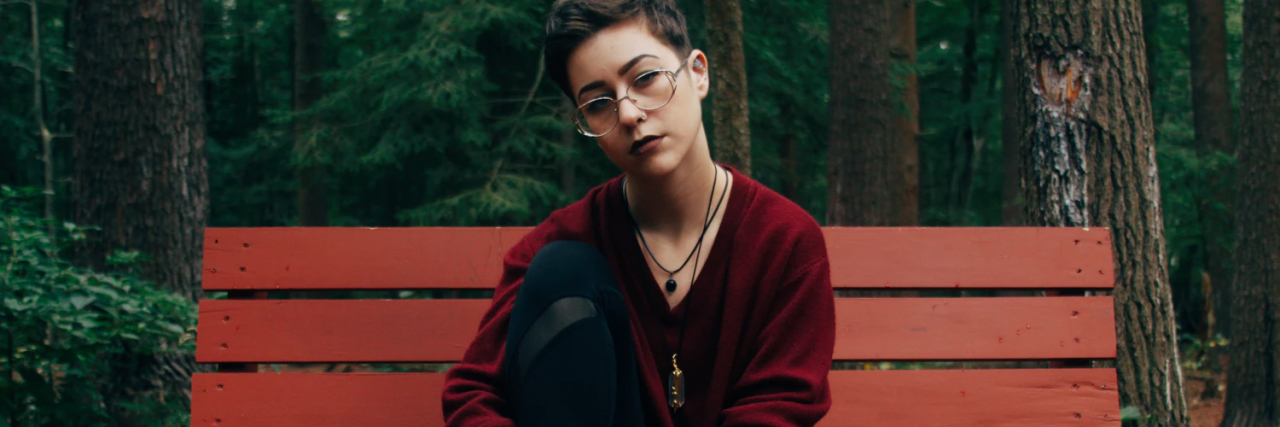Why Being an Empath in the LGBTQIA+ Community Is Exhausting
I used to live in deep East Texas. It was in the Bible Belt and known for its people’s staunch conservative beliefs. Being queer here was hard. If you found a place to gather with other queer folks, you were lucky.
Because my town was a college town, we happened to have a select few spaces that were queer-friendly, even if they had to hide it or be very careful about how they advertised it. One of these spaces was a local cafe that had just begun a weekly open mic night. It was a casual affair where slam poetry and a cappella singing accompanied by music tracks played from YouTube apps were common. Sometimes, the talent would be a hidden gem; other times, it was cringe-worthy, but that didn’t matter because the environment was one of community and support, and the bravery to even step on stage in the first place was commended and met with warm applause and cheers.
As expected, these events were where queer people like myself came to meet other members of their community, usually just for friends, from what I observed. In a town like this one, run by old Republican money and one monopolizing mega-church, we were desperate for queer companionship, much less worried about actually engaging in any romantic encounters. This being said, my friends and I would often make new friends at these meetups. My best friend and I, who are both empaths, usually drew the most new faces, and the group sitting with us would often expand and add a maze of extra chairs around our table over the course of the night. We were kind and didn’t turn people away with snide looks if they were odd or socially awkward. This led to some great connections, but also to something interesting I have noticed specifically within the Southern queer community: we became their emotional caretakers for the night.
Being queer in an area that doesn’t love the way that you love can be damaging and make you feel emotionally drained, desperate for a connection and for accepting companions. This was evident in several people my friend and I met at the open mic nights in our town. They were usually femme gay men at varying levels of out. They were friendly and funny and a little overeager, but we liked them and would talk throughout the night. At the end of the event, however, my friend and I would find ourselves drained, needing to go home and go straight to bed or go visit the other’s apartment to watch a light, silly movie to release some of the emotional weight we felt. Each time, we had only met each new person once, yet had been told enough heartbreaking stories about their lives, or just felt how much heartbreak they must have experienced through their insecure behavior, to feel heavy at the end of the event. We both care deeply about people and we’re happy these potentially lost souls had found companionship for the night, but we had lost what was supposed to be a joyful evening and had essentially become unofficial therapists for three or four hours. I have been to few other queer meeting spaces, but the ones I have managed to find all follow this same trend: empaths draw hurting queer people like moths to a flame and are subsequently emotionally drained because they are being used to attempt to repair a lifelong hurt.
My friend and I stopped attending the open mic night in our town. It was not due to the quality of the event, but because we could not spend any more of our free evenings caring for the emotional pains of those who truly needed counselors. This experience has highlighted for us the severe lack of resources available to the queer community in our city, and while it is terrible and needs to be remedied, we realized we needed to protect ourselves first, having both had our empathy taken advantage of in the past, and stop being placed in a position to fill the needs of an entire community.
I hope for the healing of our community. I am lucky to have found counselors who are truly LGBTQIA+ allies, but they are few and far between. I hope more people will graduate from our colleges or move into our town and fill in the resource gaps our queer citizens currently face. Until then, I send all the love, light and support I can to the queer people and allies in my hometown. I hope you find all the love and support you deserve. To my fellow empaths, I send you a reminder to care for yourselves and that boundary-setting is OK. You have to care for you first. You can’t heal decades of oppression and hurt over the course of an evening.
Fellow empaths, have you ever encountered similar circumstances within queer meeting spaces? How did you cope? Were you able to refer those you met to any resources? If so, what were they? I look forward to hearing your responses.
Photo by Timothy Paul Smith on Unsplash

